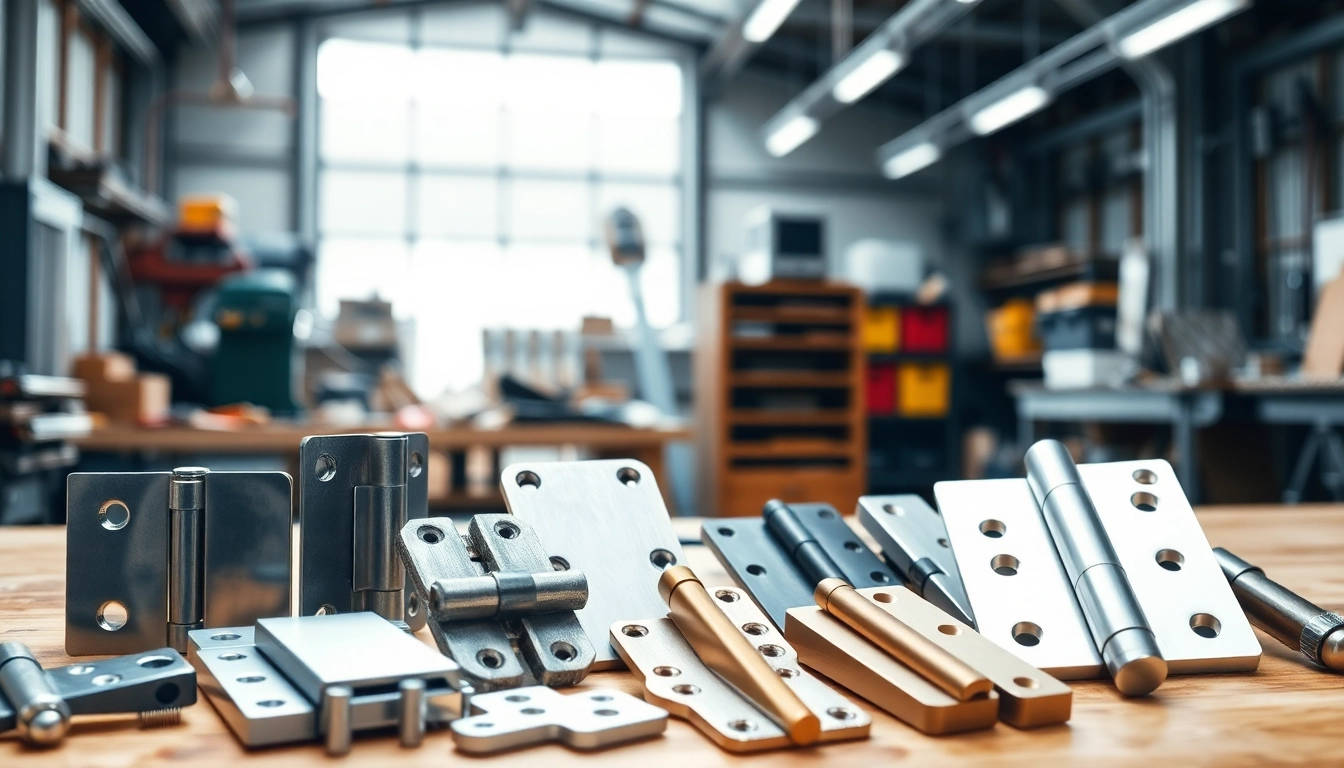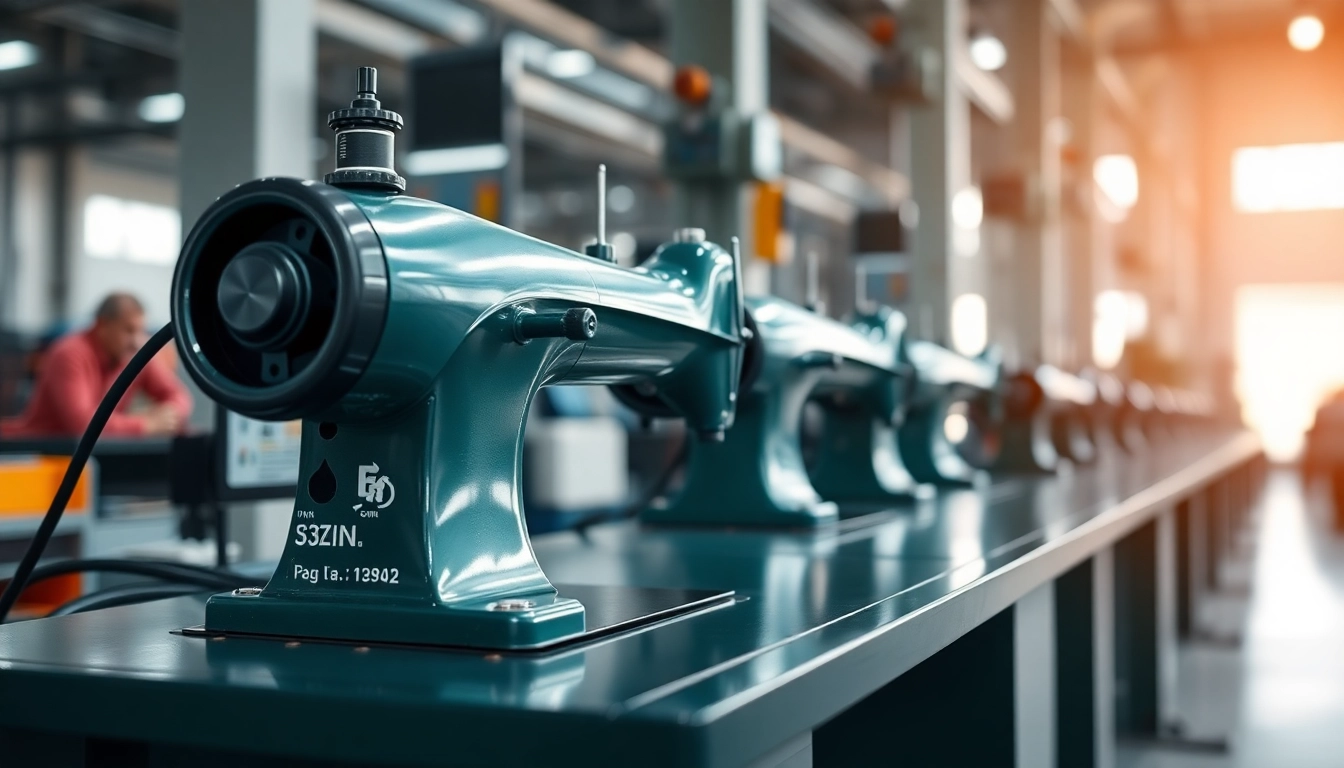Understanding the Role of a Hinge Supplier
A hinge supplier plays a crucial role in providing essential components for doors, cabinets, and machinery across various sectors. From residential homes to industrial plants, hinges are a fundamental part of any opening and closing mechanism. As the backbone of mobility and accessibility in structures, suppliers of hinges must ensure high standards in product quality, innovation, and versatility. For those actively searching for reputable sources, a reliable Hinge Supplier can significantly enhance your construction or manufacturing project.
What is a Hinge Supplier?
A hinge supplier is a business that manufactures, distributes, or sells various types of hinges for different applications. They often carry an extensive range of products, including decorative hinges, heavy-duty industrial hinges, and specialty hinges designed for unique applications. By providing both standard and custom solutions, hinge suppliers serve a diverse clientele, from individual consumers to large corporations, ensuring that quality and compatibility are met across multiple industries.
The Importance of Quality in Hinges
The quality of hinges directly affects the functionality and longevity of doors and other installations. Poor-quality hinges can lead to operational failures, increased maintenance costs, and safety hazards. High-quality materials such as stainless steel, brass, and bronze are essential for durability, especially in environments subject to moisture or extreme temperatures. Moreover, a reliable hinge supplier ensures that all products meet relevant industry standards, providing customers with peace of mind regarding their investments.
Types of Hinges Offered by Suppliers
Hinge suppliers cater to a wide array of applications by offering various types of hinges, each serving a unique function. Here are some common types found in the market:
- Butt Hinges: The most common type, used in doors and cabinets.
- Continuous Hinges: Also known as piano hinges, these run the entire length of the door or lid, providing even weight distribution.
- Spring Hinges: Designed to automatically return doors to their closed position, commonly used in self-closing doors.
- Pivot Hinges: Allow doors to pivot either in or out, benefiting space-saving designs.
- Concealed Hinges: Hidden from view when the door is closed, these are popular in modern cabinetry.
- Strap Hinges: Used primarily for gates and barn doors, providing additional strength and stability.
- Decorative Hinges: Aesthetic options that add visual appeal to furniture and cabinetry.
Choosing the Right Hinge Supplier for Your Needs
Evaluating Supplier Credentials and Experience
When selecting a hinge supplier, it is critical to evaluate their credentials and experience within the industry. Long-standing companies often possess a wealth of knowledge about product quality, customer service, and technical specifications, making them trustworthy partners. Look for suppliers who have been in business for several years, are recognized in the industry, and have established a reputation for innovation and reliability.
Understanding Product Variety and Specialization
Different projects require different types of hinges, and a good supplier will offer a broad spectrum of products. Assess whether the supplier maintains a diverse inventory with various sizes, materials, and types. Additionally, inquire about their specialization. Some suppliers focus on residential applications, while others may be more adept at providing products for industrial use. Understanding this can help you align your project needs with a supplier’s strengths.
Comparing Prices and Value Propositions
Price is a crucial factor when choosing a hinge supplier, but it should not be the only consideration. It is important to compare pricing not only based on listed costs but also on the value proposition each supplier offers. Take into account shipping fees, bulk purchasing discounts, warranty offerings, and customer support services. Investing in higher-quality hinges from a reputable supplier may save costs in the long run due to reduced maintenance and replacement needs.
Common Applications for Hinges in Industries
Residential Applications
In residential settings, hinges are predominantly used for doors, windows, and cabinetry. Homeowners might choose decorative or concealed hinges to enhance the aesthetic appeal of their interiors, while durable options are preferred for external doors. Understanding the specific requirements for residential hinges—such as size, material, and load-bearing capacity—is essential for both household safety and comfort.
Commercial Uses
In commercial environments, hinges must withstand greater wear and tear due to high foot traffic. Heavy-duty hinges made from materials like stainless steel or brass are often recommended. Applications may include office doors, storefront entrances, and industrial facility doors. In these cases, features like fire-rating, tamper resistance, and automatic closing capabilities are essential considerations for ensuring compliance with safety regulations and security standards.
Industrial Applications
Hinges in industrial settings are designed to handle extreme conditions. Continuous and pivot hinges, for instance, are widely used in heavy machinery, conveyor systems, and shipping containers where durability is paramount. Suppliers often provide specialized options that can endure exposure to chemicals, abrasion, and extreme temperatures. Understanding the specific environmental conditions in which the hinges will operate allows for informed selections that ensure optimal performance and longevity.
Best Practices for Sourcing from Hinge Suppliers
How to Request Quotes and Samples
When considering a hinge supplier, it is advisable to request quotes and samples of their products. This provides a hands-on evaluation of the quality and compatibility of the hinges with your specific application. When requesting a quote, include details such as quantity, material requirement, suggested load, and any customization options. Suppliers often appreciate precise requests, as these will speed up their response times and ensure accurate quotations.
Understanding Warranty and Support Services
Evaluating the warranty and support services a supplier offers is critical in ensuring long-term satisfaction with your hinge purchases. A robust warranty demonstrates a supplier’s confidence in their product quality. Additionally, assess the level of customer support available—whether that consists of technical assistance, consultation, or resolving issues post-purchase. A partner who values customer service can often make a significant difference in your sourcing experience.
Negotiating Terms with Suppliers
Negotiation is an essential part of the procurement process. Effective communication with suppliers can lead to better pricing, improved payment terms, and enhanced delivery schedules. Understanding market rates and competitors can empower you to negotiate effectively while fostering a collaborative relationship. Remember, maintaining a professional tone and clear expectations can encourage suppliers to work with you rather than against you, leading to beneficial terms for both parties.
Future Trends in the Hinge Supply Industry
Impact of Technology on Hinge Manufacturing
Technological advancements are profoundly influencing hinge manufacturing. Automation and robotic systems allow for precision engineering and mass production, significantly reducing lead times and manufacturing costs. Additionally, 3D printing technology is emerging as a sustainable alternative, enabling the production of custom-designed hinges without the need for extensive tooling and machining. As technology continues to evolve, suppliers able to adapt will have significant competitive advantages.
Emerging Materials and Designs
Innovation in materials and designs significantly shapes the hinge industry. Lightweight and durable materials such as composite plastic and titanium alloys are gaining traction, especially in sectors where weight reduction is imperative. Furthermore, hybrid hinge designs that combine aesthetics with functionality are becoming popular, catering to an increasingly discerning market that values form as much as function.
Sustainability Practices in Hinge Production
Sustainability is no longer just a trend; it is becoming an industry standard. Hinge suppliers are increasingly focusing on environmentally friendly practices, from ethically sourcing materials to implementing recycling programs. Brands that demonstrate accountability for their environmental impact often attract conscientious consumers who prefer companies that align with their values. In addition, suppliers that adopt sustainable practices may find themselves benefitting from governmental incentives and consumer loyalty, making this a forward-thinking strategy for future growth.



